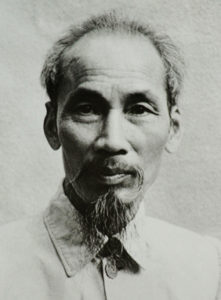Carl von Clausewitz, the author of On War witnessed the brutality of modern warfare. He was present at some of the most critical battles of the Napoleonic Wars and saw first-hand the carnage large groups of armed men and artillery can inflict on one another.
He fought on the side of the Russians at Borodino (1812) where approximately 80,000 men on both sides were killed, wounded or taken prisoner. Clausewitz saw the horrific slaughter of French Infantry at the Raevsky Redoubt – a series of earthworks from which a rain of cannon and musket fire scythed down the advancing French troops in grim a precursor to the trench warfare later played out at disparate locations such as Sebastopol (1854-55),Cold Harbour (1864) and the Marne (1914). Later he fought at the lesser known but equally significant battle of Wavre where the Prussian Army blocked French reinforcements from joining Napoleon at Waterloo (1815).
On War, which was published after his death in 1832 is both a theoretical treatise on warfare and rational summary of Clausewitz’s experience of combat. Typically, as in the case of all great thinkers, later academics both military and non-military have misinterpreted or misunderstood Clausewitz in order to justify their various ideological agendas. His most famous aphorism that “war is a continuation of politics through other means” has been removed from its context and used to justify massive public spending on armaments.
Yet one of the most significant and relevant passages from On War is probably the least famous [italics are mine].
Wars must vary with the nature of their motives and of the situation which gives rise to them. The first, the supreme, the most far reaching act of judgement that the statesman and the commander have to make is to establish by that test the kind of war on which they are embarking; neither mistaking it for, nor trying to turn it into, something alien to its nature. This is the first of all strategic questions and the most comprehensive.
Here Clausewitz is talking about the reality of motivation for war rather than the ideological convictions behind those motivations and how that reality should shape the tactics for the successful completion of a war. A further extrapolation being that the resolution of any conflict is dependent on what is real not what its actors desire it to be.
Yet since the end of World War II both the public and western militaries have dwelt in a bubble of non-reality. Since the conclusion of World War II one thousand soldiers and five thousand civilians have been killed per day in regional wars across the world. This is approximately the same number of deaths per diem as during World War II.
There is a public disconnection between the perception of this ongoing death and destruction and the reality of why it is occurring. Part of the blame for this lies with the unofficial covert status of modern warfare as practiced by Western powers. At the time of writing, French troops are embroiled in Mali while American military advisers in Kenya are assisting Kenyan troops in an ongoing fight with Al-Shabbab in Somaliland.
At the same time, troops from Niger, Chad, Cameroon and Nigeria with the backing of the American CIA and Britain are pursuing a war with Boko Haram in Nigeria and surrounding states.
In the Middle East, both Saudi Arabia and the United States are locked in a dirty war in Yemen while to the north, Palestinian opposition to US-supported Israeli occupation continues its violent cycle, a conflict that has since 1948 spilled over into Lebanon, Jordan, Egypt and Syria.
The Syrian Civil War that erupted in 2011 has drawn outside forces into that conflict. There are parallels with the Syrian Civil War and the Spanish Civil War of 1936-1939 in that outside powers are working to influence the outcome of that conflict. In Syria, Russian, American and Turkish forces and their proxies are vying for control of an area crucial to oil exports and regional trade.
In each of these cases, the root causes of each conflict are environmental and nationalist. Each of the countries listed has suffered from climate change, most notably Syria where a series of failed harvests and the failure of the Assad regime to address food shortages ignited the popular revolt that triggered the recent Civil War.
The nationalist aspects of each conflict are visible in the manifestos of the groups involved. The organisations have different names – ISIS, Boko Haram, Al-Quaeda, Al-Shabbab- and while their Islamist principles have been made evident through their many pronouncements on social issues, these groups are at the core, nationalist movements. Just as communism served as a legitimising ideology for nationalist movements in China and Vietnam, and Korea in post-World War II era, Islamism is being used by nationalist groups in Africa and the Middle East to create a sense of philosophical legitimacy.
None of this is to condone the methods employed by ISIS and other groups. It is merely an effort to provide an accurate portrait of these groups that is untainted by the jingoistic descriptions emanating from the Western powers.
Moreover, when the situation is looked at without an ideological lens, what is apparent is that all of the above conflicts are connected. In each case, Western powers and their proxies are fighting to maintain control over regions containing strategic resources.
Leaving aside the dubious ethical reason for the fighting, the ideological convictions at play on all sides are rooted in fantasy. The United States claims to be fighting a war against “terrorism” and against Islamist forces that want to control the world. The reality is that the groups they are fighting are local nationalist movements with an Islamist philosophy. The reality of geopolitics is that even if a group like Al-Shabbab came to power in its locale, it would be limited by both physical geography and ethnic geography. The latter is of crucial importance.
Consider Afghanistan and Vietnam. Even at the height of its power, the Afghan Taliban only controlled eighty percent of the Afghan landmass. They were limited by topography and the ethnic divisions that coalesced around the Northern Alliance, including the Tajiks and the Pamiris.
Similarly, the Domino Theory behind French and US intervention in Vietnam did not stand up to reality when in 1979 the Vietnamese defeated the invading Chinese forces during the Third Indochina War. American assumptions that China would absorb Vietnam ignored the centuries of ethnic rivalries between the two powers that predated Western colonialism.
Regardless of the reader’s stance on the so-call War on Terror, any sensible resolution to the above conflicts can only occur when reality is acknowledged and accepted over ideological agendas. To do otherwise is to deny Clausewitz’s correct assertion that statesmen and commanders neither mistake this war for, nor try to turn it into, something alien to its nature.
Failure to acknowledge that reality will result in the geopolitical, military, economic and political defeat of the West.
There are many reasons why militaries (and the societies that produce them) fail to come to terms with reality and all of these are rooted in ideology. In the case of the United States there exists at a tactical level, an obsession with military technology and equipment. Yet as defeat in Vietnam attested, technology alone does not ensure victory.
Second, there exists a moral dimension to America’s failure to grasp military realities; that being the contradiction of spreading democracy and free markets by armed force. Like the Athenians of the Classical Era, there is a dishonesty at the core of American foreign policy that denies the brutality and larceny that occurs when its military is unleashed against a foreign population.
Third and of primary importance is a religious ideology at entirely at odds with reality. US support for Israel, while ostensibly serving as a pillar of regional control is rooted in a fundamentalist Christian belief that the Final Conflict between the Messiah and the Anti-Christ will occur in Israel. That this belief (best described by the term dispensationalism) is not derived from the Gospel but from the Book of Revelations, – which in itself is derived from the pre-Christian Book of Daniel – and has no basis in physical reality is beside the point. The fact is believers in such abstract nonsense have influenced Western policy towards the Middle East for the last two hundred years. Most notably in the twentieth century was Prime Minister Lloyd George and his colleague Lord Balfour from whose foreign policy helped create the modern state of Israel. Former Prime Minister Tony Blair subscribed to dispensationalism and those beliefs influenced his determination to draw Britain into Gulf War II.
In the United States, dispensationalists have included former Presidents Ronald Reagan and George W Bush. Donald Trump’s current energy secretary, former Texas Governor Rick Perry is a member of the Dominionist Church, a militant Christian grouping that seeks to set-up a Christian nation governed by biblical law. A planned consequence of this would be the criminalization of homosexuality, adultery and public blasphemy to name but a few “biblical crimes”, all of which would carry a death sentence.
That such beliefs are predicated on abstract nonsense does not diminish the fact that these beliefs have profoundly influenced American foreign and domestic policy since the end of World War II. In turn, these beliefs have hindered effective foreign and domestic policy during the same time period. The hardline Anti-Soviet stance adopted by the Christian Right helped precipitate the Cold War.
The dispensationalist support for “regime change” in the Middle East has cost the lives of millions of people and bankrupted the US treasury. These beliefs have had a deleterious effect on the effectiveness of the US military in foreign operations. The US military operates under the illusion that it is a crusading force for good, rather than an occupying army. The inability of US forces to handle the occupation of Iraq and Afghanistan was evident in its conduct towards civilians, its many war-crimes (Abu Ghraib being the most notorious) and the contrasting success of British forces operating in Basra.
Before these issues can be addressed, there first needs to be a widespread acknowledgement of reality among the citizenry. A capable president with the backing of popular support could do much to deal with these problems. Doing so would not be easy and it would require a great deal of personal courage. However, these issues are not insurmountable. Precedent can be found with former Soviet President Mikhail Gorbachev. Faced with opposition to the policy of Glasnost and Détente with the US in the 1980’s Gorbachev was able to outmaneuver his critics and his own generals. After Mathias Rust flew his plane over Red Square, Gorbachev used the incident to marginalise the army generals who opposed his reform policies. The result for the world was the aversion of nuclear conflict with the US and the end of the Cold War.
War is as Plato noted, a reality “that exists as if by nature between every city-state.” However a constant state of war as exists in the Western World today undermines the foundations of civilisation. Wars, then while an occasional and unpleasant necessity should therefore be ended as quickly as possible. Instead, the dominant ideologies behind modern Western militarism persist in perpetuating unlimited, endless warfare. These forces must be stopped and controlled through democratic means otherwise they will continue to undermine the moral and economic well-being of society.

Carl von Clausewitz
Doing so will not be easy. The journalist Chris Hedges compared war to an addictive drug and like addicts western militarists are unable to perceive the damage they are doing to society. There is no easy solution to that addiction but the first step is the acceptance of reality. That requires an informed citizenry rejecting the nonsensical views of ideologues like Karl Rove who once said of the Republican Party “We’re an empire now, and when we act, we create our own reality.”
Regardless of the cognitive dissonance of Rove and others, the most important lesson of war was best stated by Sun-Tzu: There is no instance of a nation benefiting from prolonged warfare.


